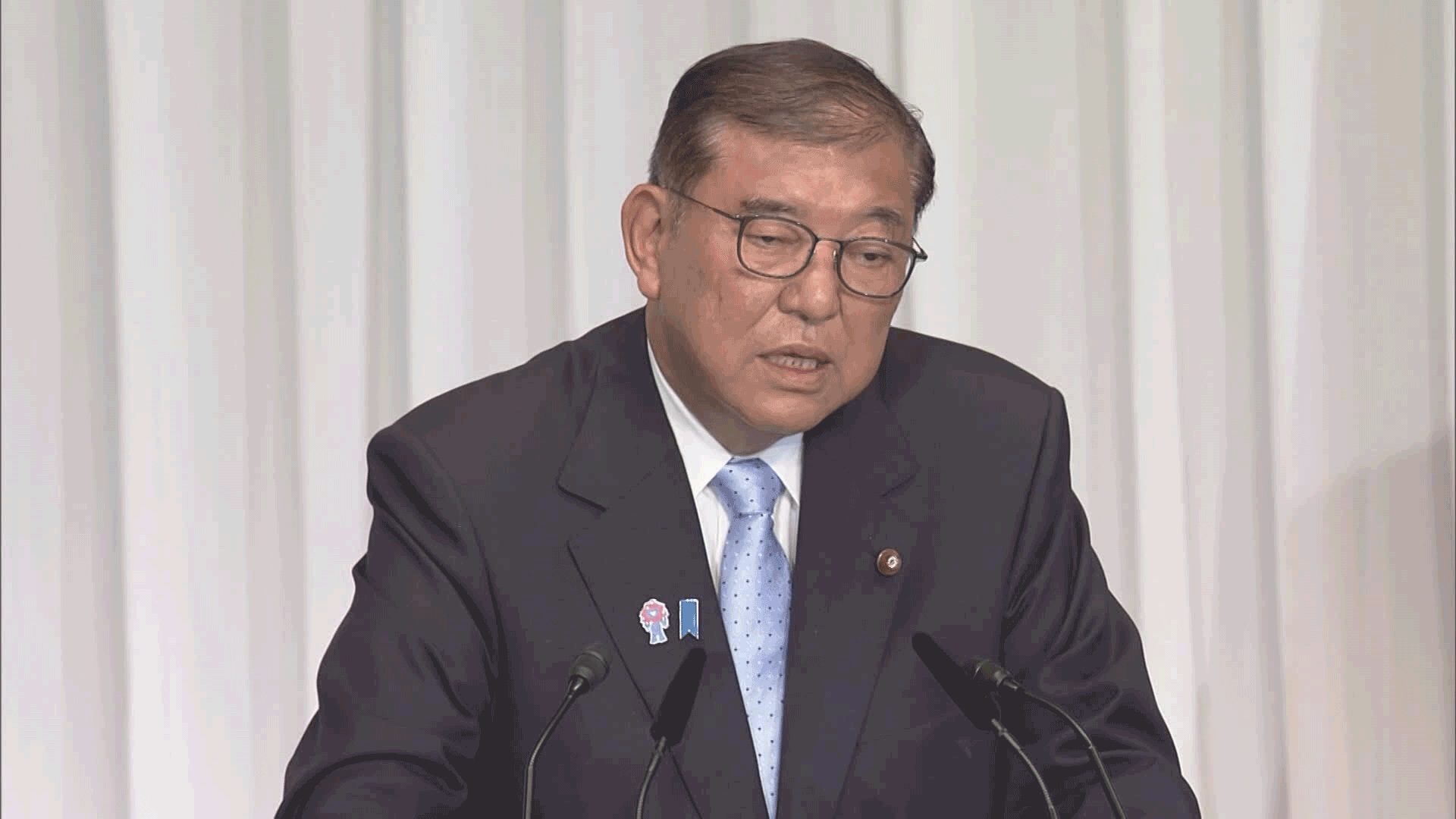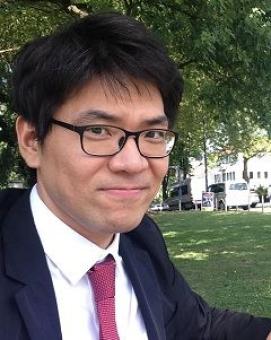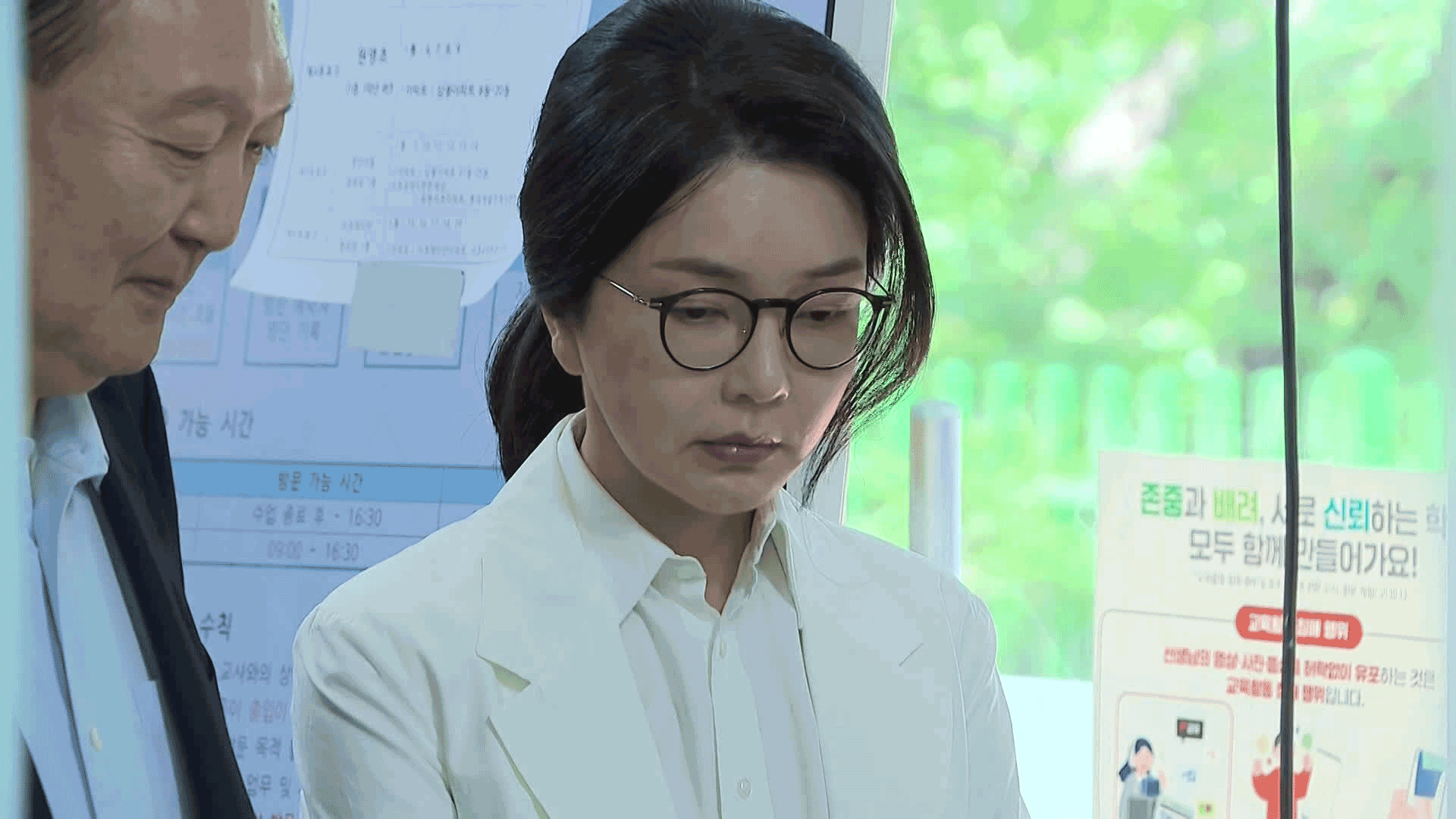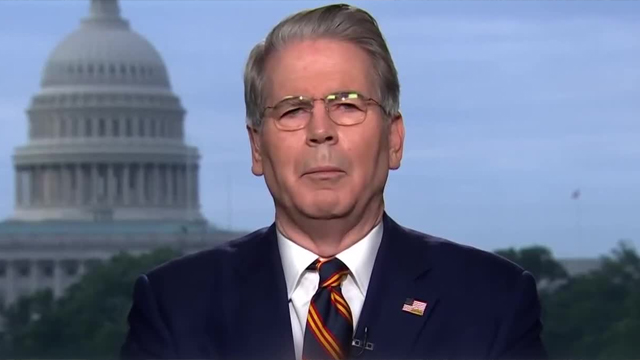[Anchor]
In the results of the House of Councillors election, which corresponds to Japan's upper house, the ruling party has lost its majority seats.
Following a series of election defeats, there are evaluations suggesting that the lifespan of the ruling party, the Liberal Democratic Party (LDP), may have come to an end.
This is Tokyo, reporter Hwang Jin-woo.
[Report]
The LDP secured 39 seats, and the Komeito Party obtained 8 seats, resulting in a dismal performance for the Japanese coalition government in the House of Councillors election.
They fell short by 3 seats of the 50 seats they aimed for as a minimum to maintain a majority.
The House of Councillors has shifted to a situation where the ruling party has fewer members, leading to a divided government.
The LDP and Komeito also failed to achieve a majority in the House of Representatives election last October.
Japanese media are analyzing that the LDP is facing a situation it has never encountered since its founding in 1955, leading to speculation about its potential end.
Prime Minister Ishiba Shigeru is in a situation where accountability is inevitable, but he has made it clear that he has no intention of stepping down from his position.
[Ishiba Shigeru/Prime Minister of Japan: "We must fulfill our responsibilities as the ruling party and our responsibilities to the nation and the people."]
Supporters who have defected from the LDP are reportedly moving to the Democratic Party for the People or the Sanseito Party, which have positioned themselves as alternative forces.
In particular, the right-wing Sanseito Party has significantly increased its presence from 1 seat to 14 seats under the banner of "Japan First."
[Kamiya Sohei/Leader of the Sanseito Party: "We will not bend our ideology and will do everything to prioritize 'Japan First,' listening properly to the people and reflecting the thoughts of our party members in our politics."]
For the time being, various possibilities such as a change of prime minister, expansion of the coalition government, and a change of administration are expected to emerge in Japanese politics.
This is Hwang Jin-woo from KBS News in Tokyo.
In the results of the House of Councillors election, which corresponds to Japan's upper house, the ruling party has lost its majority seats.
Following a series of election defeats, there are evaluations suggesting that the lifespan of the ruling party, the Liberal Democratic Party (LDP), may have come to an end.
This is Tokyo, reporter Hwang Jin-woo.
[Report]
The LDP secured 39 seats, and the Komeito Party obtained 8 seats, resulting in a dismal performance for the Japanese coalition government in the House of Councillors election.
They fell short by 3 seats of the 50 seats they aimed for as a minimum to maintain a majority.
The House of Councillors has shifted to a situation where the ruling party has fewer members, leading to a divided government.
The LDP and Komeito also failed to achieve a majority in the House of Representatives election last October.
Japanese media are analyzing that the LDP is facing a situation it has never encountered since its founding in 1955, leading to speculation about its potential end.
Prime Minister Ishiba Shigeru is in a situation where accountability is inevitable, but he has made it clear that he has no intention of stepping down from his position.
[Ishiba Shigeru/Prime Minister of Japan: "We must fulfill our responsibilities as the ruling party and our responsibilities to the nation and the people."]
Supporters who have defected from the LDP are reportedly moving to the Democratic Party for the People or the Sanseito Party, which have positioned themselves as alternative forces.
In particular, the right-wing Sanseito Party has significantly increased its presence from 1 seat to 14 seats under the banner of "Japan First."
[Kamiya Sohei/Leader of the Sanseito Party: "We will not bend our ideology and will do everything to prioritize 'Japan First,' listening properly to the people and reflecting the thoughts of our party members in our politics."]
For the time being, various possibilities such as a change of prime minister, expansion of the coalition government, and a change of administration are expected to emerge in Japanese politics.
This is Hwang Jin-woo from KBS News in Tokyo.
■ 제보하기
▷ 카카오톡 : 'KBS제보' 검색, 채널 추가
▷ 전화 : 02-781-1234, 4444
▷ 이메일 : kbs1234@kbs.co.kr
▷ 유튜브, 네이버, 카카오에서도 KBS뉴스를 구독해주세요!
- Japan's ruling camp loses majority
-
- 입력 2025-07-22 02:02:37

[Anchor]
In the results of the House of Councillors election, which corresponds to Japan's upper house, the ruling party has lost its majority seats.
Following a series of election defeats, there are evaluations suggesting that the lifespan of the ruling party, the Liberal Democratic Party (LDP), may have come to an end.
This is Tokyo, reporter Hwang Jin-woo.
[Report]
The LDP secured 39 seats, and the Komeito Party obtained 8 seats, resulting in a dismal performance for the Japanese coalition government in the House of Councillors election.
They fell short by 3 seats of the 50 seats they aimed for as a minimum to maintain a majority.
The House of Councillors has shifted to a situation where the ruling party has fewer members, leading to a divided government.
The LDP and Komeito also failed to achieve a majority in the House of Representatives election last October.
Japanese media are analyzing that the LDP is facing a situation it has never encountered since its founding in 1955, leading to speculation about its potential end.
Prime Minister Ishiba Shigeru is in a situation where accountability is inevitable, but he has made it clear that he has no intention of stepping down from his position.
[Ishiba Shigeru/Prime Minister of Japan: "We must fulfill our responsibilities as the ruling party and our responsibilities to the nation and the people."]
Supporters who have defected from the LDP are reportedly moving to the Democratic Party for the People or the Sanseito Party, which have positioned themselves as alternative forces.
In particular, the right-wing Sanseito Party has significantly increased its presence from 1 seat to 14 seats under the banner of "Japan First."
[Kamiya Sohei/Leader of the Sanseito Party: "We will not bend our ideology and will do everything to prioritize 'Japan First,' listening properly to the people and reflecting the thoughts of our party members in our politics."]
For the time being, various possibilities such as a change of prime minister, expansion of the coalition government, and a change of administration are expected to emerge in Japanese politics.
This is Hwang Jin-woo from KBS News in Tokyo.
In the results of the House of Councillors election, which corresponds to Japan's upper house, the ruling party has lost its majority seats.
Following a series of election defeats, there are evaluations suggesting that the lifespan of the ruling party, the Liberal Democratic Party (LDP), may have come to an end.
This is Tokyo, reporter Hwang Jin-woo.
[Report]
The LDP secured 39 seats, and the Komeito Party obtained 8 seats, resulting in a dismal performance for the Japanese coalition government in the House of Councillors election.
They fell short by 3 seats of the 50 seats they aimed for as a minimum to maintain a majority.
The House of Councillors has shifted to a situation where the ruling party has fewer members, leading to a divided government.
The LDP and Komeito also failed to achieve a majority in the House of Representatives election last October.
Japanese media are analyzing that the LDP is facing a situation it has never encountered since its founding in 1955, leading to speculation about its potential end.
Prime Minister Ishiba Shigeru is in a situation where accountability is inevitable, but he has made it clear that he has no intention of stepping down from his position.
[Ishiba Shigeru/Prime Minister of Japan: "We must fulfill our responsibilities as the ruling party and our responsibilities to the nation and the people."]
Supporters who have defected from the LDP are reportedly moving to the Democratic Party for the People or the Sanseito Party, which have positioned themselves as alternative forces.
In particular, the right-wing Sanseito Party has significantly increased its presence from 1 seat to 14 seats under the banner of "Japan First."
[Kamiya Sohei/Leader of the Sanseito Party: "We will not bend our ideology and will do everything to prioritize 'Japan First,' listening properly to the people and reflecting the thoughts of our party members in our politics."]
For the time being, various possibilities such as a change of prime minister, expansion of the coalition government, and a change of administration are expected to emerge in Japanese politics.
This is Hwang Jin-woo from KBS News in Tokyo.
-
-

황진우 기자 simon@kbs.co.kr
황진우 기자의 기사 모음
-
이 기사가 좋으셨다면
-
좋아요
0
-
응원해요
0
-
후속 원해요
0















이 기사에 대한 의견을 남겨주세요.